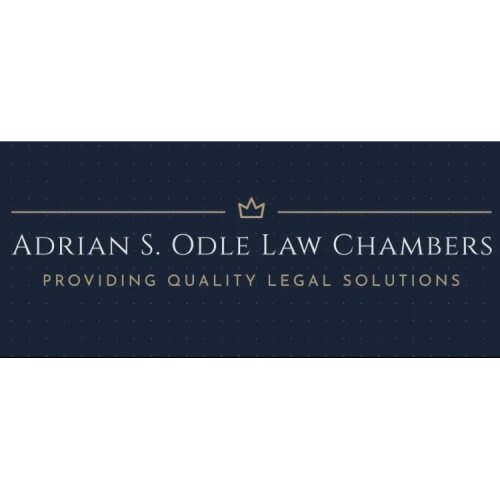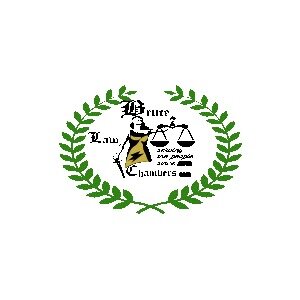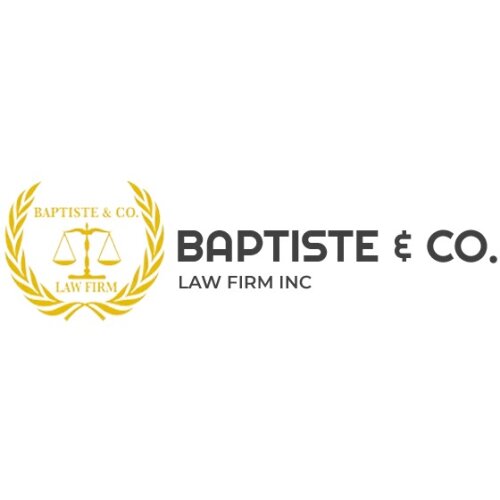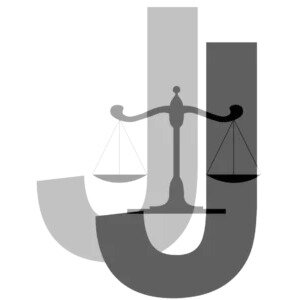Best Criminal Litigation Lawyers in Kingstown
Share your needs with us, get contacted by law firms.
Free. Takes 2 min.
List of the best lawyers in Kingstown, Saint Vincent and the Grenadines
About Criminal Litigation Law in Kingstown, Saint Vincent and the Grenadines
Criminal litigation in Kingstown, Saint Vincent and the Grenadines, involves the process by which individuals are prosecuted for criminal offenses. The legal system operates under a framework of laws and regulations designed to maintain order and administer justice. The court process can involve several stages, including investigation, charge, trial, and potentially, appeal. Understanding this process is crucial since the legal principles and procedures are strictly applied to ensure fair treatment under the law.
Why You May Need a Lawyer
There are numerous situations where seeking the advice of a lawyer is advisable in criminal litigation:
- If you have been accused of a crime and face prosecution.
- To ensure your rights are protected during police investigations or while in custody.
- For legal representation in court to present your defense effectively.
- When considering plea bargains or negotiating settlements with the prosecution.
- If you wish to appeal a conviction or sentence following a trial.
- To navigate complex legal procedures and ensure compliance with relevant legal requirements.
- For legal aid in understanding potential consequences of criminal charges.
Local Laws Overview
The legal system in Saint Vincent and the Grenadines is largely based on English Common Law. Key aspects of local laws relevant to criminal litigation include:
- Criminal Code: This code outlines offenses ranging from minor infractions to serious felonies and the corresponding penalties.
- Evidence Act: Governs what evidence is permissible in court, impacting how cases are prosecuted and defended.
- Bail Act: Sets conditions under which bail may be granted to accused persons awaiting trial.
- Police Act: Defines the powers and responsibilities of law enforcement, affecting how investigations are conducted.
- Constitutional Rights: Guarantees basic human rights including the right to a fair trial, legal representation, and protection from unlawful detention.
Frequently Asked Questions
What is the role of a criminal defense lawyer?
A criminal defense lawyer defends individuals accused of crimes, ensuring their legal rights are protected, representing them in court, and providing guidance on legal options and potential outcomes.
How does bail work in Kingstown?
Bail allows an accused individual temporary freedom pending trial, contingent on financial assurance that they will return for court appearances. The Bail Act governs these proceedings.
What should I do if I'm arrested?
If arrested, it’s crucial to remain calm, request a lawyer immediately, and exercise your right to remain silent until counsel is present.
Can I represent myself in court?
While legally you can represent yourself, criminal litigation is complex, and having professional legal assistance significantly improves the chances of a favorable outcome.
What happens if I can't afford a lawyer?
Individuals unable to afford legal representation may be eligible for legal aid. This service provides lawyers at reduced or no cost, depending on the individual's financial situation.
How long does criminal litigation usually take?
The duration varies based on the complexity of the case, the court's schedule, and whether the case goes to trial. It can range from several months to years.
What are the possible outcomes of a criminal trial?
Outcomes can include acquittal, where charges are dismissed, or conviction, which may result in fines, community service, probation, or imprisonment.
Can a conviction be appealed?
Yes, if there is a legal basis such as procedural errors or new evidence, a conviction can be appealed to a higher court.
What is the difference between a plea bargain and going to trial?
A plea bargain involves agreeing to plead guilty to a lesser charge or reduced sentence, while going to trial involves contesting the charges in court.
What rights do I have during police investigations?
Individuals have the right to remain silent, the right to speak with an attorney, and protection against self-incrimination and unlawful searches.
Additional Resources
For further assistance, interested individuals can reach out to:
- Law Chambers and Firms: Numerous local legal practitioners specialize in criminal law.
- National Prosecution Service: Provides information about the prosecution process and your role within it.
- Legal Aid Office: Offers services for those needing legal representation but cannot afford it.
- Human Rights Organizations: Advocacy groups that can provide assistance and information on your rights.
Next Steps
If you require legal assistance in criminal litigation, the following steps can help you proceed:
- Consult with a qualified criminal defense lawyer for personalized advice.
- Gather and organize any documentation related to your case.
- Understand the charges or potential charges against you and the associated legal process.
- Explore eligibility for legal aid if necessary.
- Maintain regular communication with your legal counsel to remain informed about your case.
Lawzana helps you find the best lawyers and law firms in Kingstown through a curated and pre-screened list of qualified legal professionals. Our platform offers rankings and detailed profiles of attorneys and law firms, allowing you to compare based on practice areas, including Criminal Litigation, experience, and client feedback.
Each profile includes a description of the firm's areas of practice, client reviews, team members and partners, year of establishment, spoken languages, office locations, contact information, social media presence, and any published articles or resources. Most firms on our platform speak English and are experienced in both local and international legal matters.
Get a quote from top-rated law firms in Kingstown, Saint Vincent and the Grenadines — quickly, securely, and without unnecessary hassle.
Disclaimer:
The information provided on this page is for general informational purposes only and does not constitute legal advice. While we strive to ensure the accuracy and relevance of the content, legal information may change over time, and interpretations of the law can vary. You should always consult with a qualified legal professional for advice specific to your situation.
We disclaim all liability for actions taken or not taken based on the content of this page. If you believe any information is incorrect or outdated, please contact us, and we will review and update it where appropriate.












